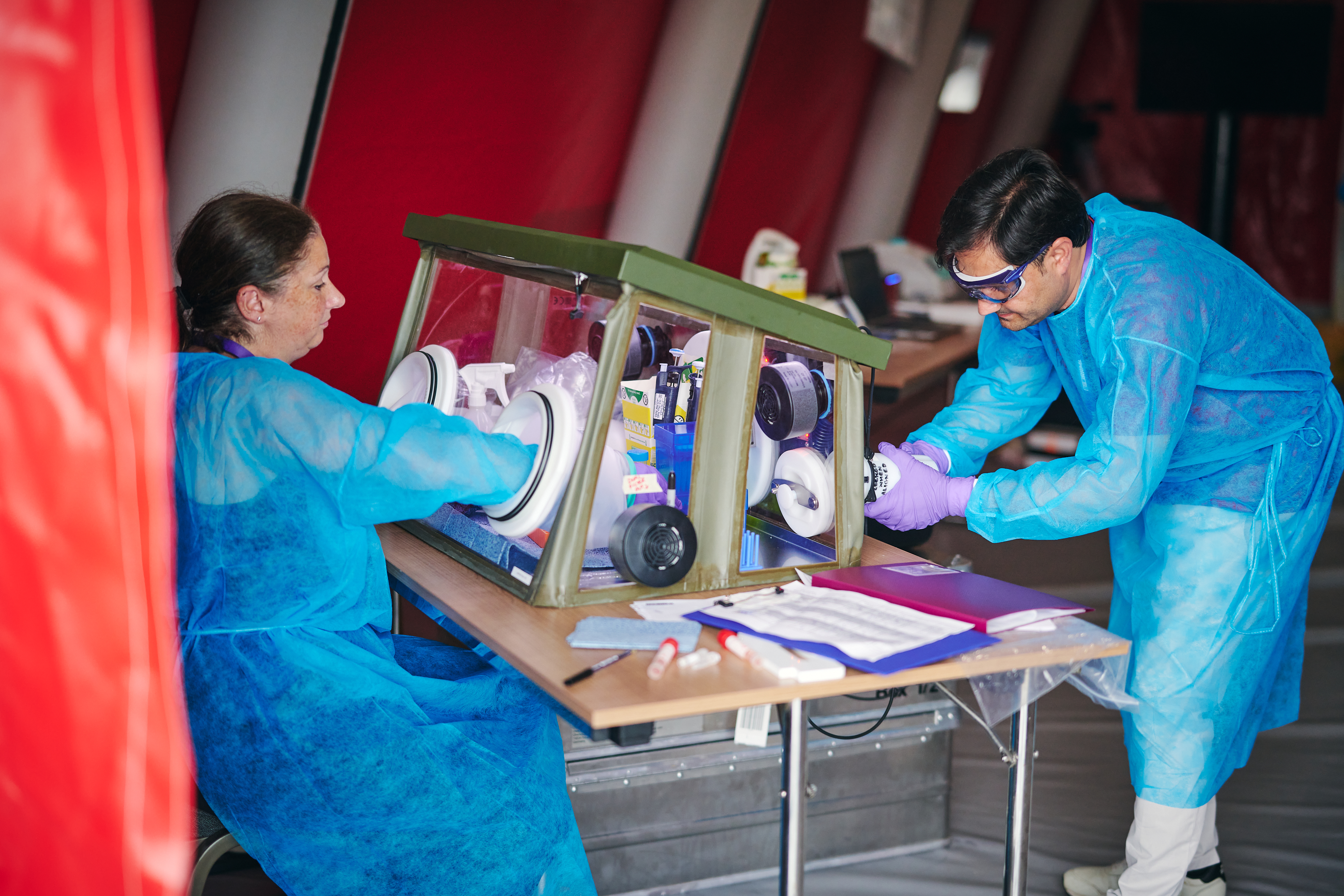
Credit: WHO Europe
The UK-Public Health Rapid Support Team is a group of experts who can deploy around the world to assist partner countries with managing infectious diseases. The team cover outbreak detection, prevention, preparedness and response; operational research; and capacity strengthening.
The team partners with low- and-middle income countries (LMICs) to support effective response to outbreaks before they develop into global health emergencies. We work closely with international organisations, partner country governments and non-governmental organisations to:
- Rapidly investigate and respond to disease outbreaks at their source in LMICs eligible for UK Official Development Assistance
- Conduct research to generate an evidence base for best practice in epidemic preparedness and response.
- Strengthen capacity for improved national response to disease outbreaks
The UK-PHRST is an innovative partnership between the UK Health Security Agency and the London School of Hygiene & Tropical Medicine, funded with UK aid by the UK Department of Health and Social Care.
From the beginning
Since its inception in 2016 following the 2014-2015 West Africa Ebola outbreak, the UK-PHRST has worked tirelessly to provide effective support to its partners to prepare, detect and respond to disease outbreaks before they develop into global health emergencies.
To do this, the UK-PHRST draws on a talented and multi-disciplinary team of public health specialists from across a range of disciplines and backgrounds from epidemiology, public health microbiology, infection prevention and control, mental health and psychosocial support, risk communications and community engagement, and social science.
COVID-19 highlighted to the whole world that viruses can and do move unpredictably and at great speed. Infectious diseases are not constrained by borders, and no one is safe until we all are safe.
Our strategy
Since joining in 2022, I have the privilege to be the Director of the UK-PHRST during a period where so much has been and continues to be done by the team. Having spent most of my career involved in outbreak response and global public health, this is a real highlight for me and everyday allows me to draw on my previous experience in leadership and as a virologist.
The UK-PHRST have had many successes since its inception, and I want us to build and expand on these.
From a research perspective, we continue looking to address key priorities that have been identified and co-developed with partners, and further strengthen our research capacity in the countries we work with.
We are also continuing to expand the capacity strengthening work we do with our partners to ensure we make meaningful and sustainable improvements to public health emergency and response workforces in partner organisations.
The Future
The UK-PHRST strives to foster equitable partnerships across our triple remit to strengthen global heath security. Providing support is not a one-way conversation - we rely on listening to and learning from our partners and leveraging their expertise to make the biggest impact.
We pride ourselves on our collaborative approach to co-create, co-design and co-deliver activities with our international partners at all times. This model of partnership not only fosters trust and respect, but also ensures that the interventions we implement are sustainable and aligned with the local context.
Specifically, our partners have made clear to prioritise integrating mental health considerations into outbreak response, the importance of community engagement so we align our efforts with the needs and priorities of the communities we serve, and ensuring our impact can be long lasting and sustainable.
These are all key areas of focus for UK-PHRST’s future activities, to ensure our support prevents infectious diseases that can have such detrimental effects on our lives and livelihoods from spreading, so improving the health security of us all.
